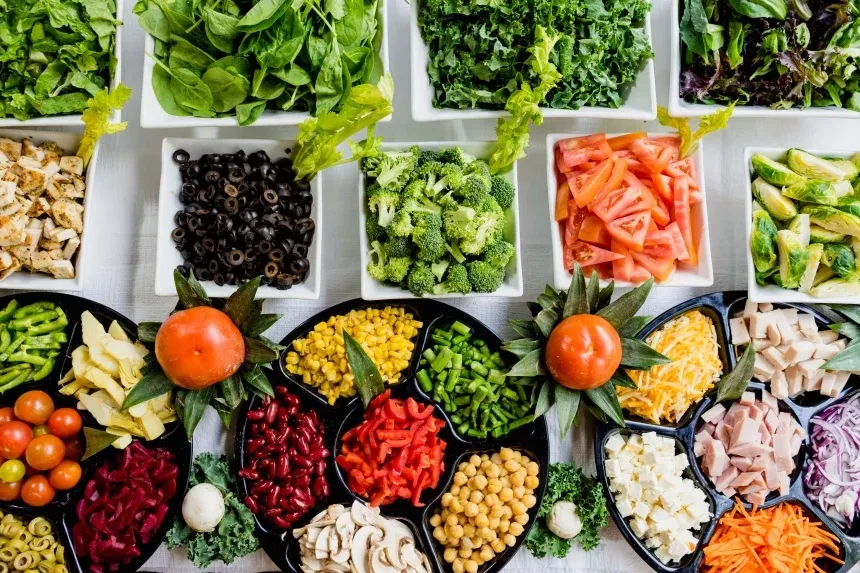Benefits and challenges of the raw vegan diet.

The raw vegan diet has gained popularity in recent years, attracting people seeking a healthier and more sustainable lifestyle. This nutritional approach is based on consuming only plant-based foods in their natural state, without cooking or processing. In this article, we will explore the benefits and challenges that this diet can present.
What is the raw vegan diet?
The raw vegan diet consists of plant foods that have not been cooked or processed at temperatures above 48 degrees Celsius. This includes fruits, vegetables, nuts, seeds, and sprouts. The main premise is to preserve the enzymes and nutrients that can be lost during cooking.
Benefits of the raw vegan diet
1. Increased consumption of fruits and vegetables
One of the main benefits is that this diet leads to a higher consumption of fresh fruits and vegetables, which can improve overall health. These foods are rich in antioxidants, vitamins, and minerals, essential for the proper functioning of the body.
2. Weight loss
The raw vegan diet can facilitate weight loss. This is because many raw foods are low in calories but high in fiber, helping to maintain the feeling of fullness. Additionally, the low saturated fat content of this diet may contribute to better weight control.
3. Improved digestive health
The high fiber content in the raw vegan diet can enhance digestive health by promoting regular bowel movements and reducing the risk of digestive issues such as constipation.
4. Potential reduction in the risk of chronic diseases
Studies suggest that a diet rich in plant-based foods may be associated with a lower risk of chronic diseases such as type 2 diabetes, heart disease, and certain types of cancer. Following a raw vegan diet may decrease the intake of processed foods and improve long-term health.
Challenges of the raw vegan diet
1. Nutritional deficiencies
One of the most significant concerns is that the raw vegan diet may lead to nutritional deficiencies. It is possible not to obtain enough essential nutrients, such as vitamin B12, iron, and proteins, which are found in limited amounts in raw foods. Proper planning and the inclusion of supplements may be necessary.
2. Social difficulties
Following a raw vegan diet can be challenging in social situations, such as dinners or family events, where options may be limited. This can make it difficult to maintain the diet and lead to a feeling of social isolation.
3. Food preparation
The raw vegan diet may require greater dedication to food preparation. Individuals must be willing to spend time planning and preparing meals, which could feel overwhelming for some.
4. Limited variety
By restricting foods to those that have not been cooked, there may be a sense of monotony in meals. It is essential to explore different recipes and flavor combinations to avoid falling into a routine.
Conclusion
The raw vegan diet offers significant benefits, such as increased intake of fruits and vegetables and a potential reduction in the risk of chronic diseases. However, it also presents challenges that can make its long-term practice difficult. It is crucial for those wishing to adopt this lifestyle to do so in an informed and balanced manner.
I invite you to explore more news and related articles on my blog, where you can find valuable information for maintaining a healthy lifestyle.











































